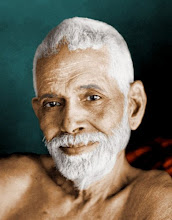However, he's beginning to read its catechism, and, so far, he's not too impressed with its anchorage in "premodern" theology and a "mythic belief structure" that threatens to separate the faithful "from the Source or Ground of our Being" while wedding them to the "gooey green" misapprehension that harmony is "the greatest value imaginable and elevating a neutered, lovey dovey, warm and fuzzy message out in place of the Gospel." He also disagrees with the catechism's "shaming" teaching that virtually all human suffering is the result of sinful disobedience, and that pride is the worst sin of all.
"As Christian feminist theologians have ably pointed out, focusing on the sin of pride in an imbalanced fashion has been a tool to oppress women and others, reinforce social inequalities and dominator hierarchies, and inflict damaging psychological harm for centuries. Foolish pride and low self-esteem are equally important sins and which to emphasize depends entirely on the context. Preaching to a woman who has never developed adequate self-esteem that she needs to be more self-sacrificing, self-effacing, and compliant with others is absolutely unacceptable. Telling a self-loathing homosexual that his greatest sin is loving himself too much just makes me want to puke. It's spiritual violence."
Joe plans to continue his reading of the catechism, but his initial impression is that it asks him to "check my modern and postmodern brain at the door and think like a premodern/child, it pushes me away." His "inner voice" tells him, "I can do better than this... I can experience Christian community in ways that are deep, meaningful, loving, and respectful of the brains and hearts of all, not just a few." But then he wonders if "other Christian denominations or sects [are] really any better," and he laments the "painful, sad state of affairs" in which it appears that they may not be and that he may be left out in the cold.
I empathize with Joe. I too would like to find a religious community that can guide me to God, wisdom, and happiness with a time-tested approach. But I provisionally concluded years ago that I would never find such a community in ANY Christian church, or, for that matter, in any synagogue, mosque, or temple.
I feel some resonance with Thich Nhat Hanh's "Order of Interbeing." I like its blending of mindfulness and social engagement. But I spent a week with Thich Nhat Hanh at a retreat a few years ago, and I experienced the slightly disquieting sense that there was a little too much self-repression and cultishness going on there, and I also found some of the psychological and spiritual teachings archaically premodern.
I feel even more attraction to Eknath Easwaran's Vedantist-Buddhist-Christian amalgam of "perennial philosophical" teachings and "eight-pointed" practices, but its community is small and scattered, and its teachings and practices strike me as simplistic even if they are appealing.
Then there is Ken Wilber's "integral" approach. I haven't exhaustively studied it, but I like much of what I've seen and understood so far of its preliminary "map" of the Kosmos. Yet, this is really more of a movement than a large, intimate, and supportive community that one can be a part of, unless, perhaps, one lives in Boulder. And then I have serious and growing reservations about what strikes me as I-I's increasing cultishness and smug sense of superiority to those with worldviews and values its members have "transcended" more than they've "included."
I was very turned off by the infamous "Wyatt Earpy" episode and by the way not only Wilber himself but also many in the Integral community handled it. I don't buy the notion that this is simply because I'm not evolved enough to have appreciated the "genius" of Wilber's words. I would be the first to concede that I'm not particularly evolved spiritually (or in any other way). But I don't think this explains my distaste for "Wyatt Earpy," and I have to honestly say that if being enlightened means embracing Wilber's conduct, I'm not sure I ever want to be enlightened.
But then what DO I want, and how do I propose to find or get it? Like Joe Perez, I don't seem to know. But I suspect that whatever it is, my quest for it will always be more solitary than communal.



1 comment:
I'd offer in Ken Wilber's 'defense' that he does not perceive himself as a leader of a church. He is a pandit rather than a sage. He is a gifted genius (in my opinion) whose contribution takes place in the realm of thoughts and he can be (embarassingly, in my opinion) touchy about criticism.
I'll also share my sense that the religious life takes place in community. That's the way that the religious life engages mind, body, heart rather than just being a mental phenomenon. Being in a community keeps one connected to reality.
I've been a part of a number of religious communities while only rarely experiencing the religious feeling of communitas that is sumptuous food for the journey. Mostly I evaluate a community not by what I would receive from it but whether it does not hinder what I have to offer.
Post a Comment